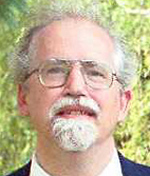Eric Henry
University of North Carolina at Chapel Hill
The Wu and Yue Chapters in Guoyu
Panel: Reshaping Classical Chinese Texts
AAS Convention, Washington DC, 6 April 2002
Abstract The Wu and Yue chapters in Guoyu (numbers 19 through 21) differ in style and ideology from the rest of the text. Among the objective markers of stylistic difference are the following: (1) the term baixing, which in all other parts of Guoyu means "the many clan chiefs," means "the common people" in these chapters; (2) no references to Shijing poems occur in the Wu and Yue chapters, as compared with 8 such references elsewhere in the text; (3) the expression junwang appears uniquely in these chapters as a term of address in speeches addressed to the King of Yue; and (4) the strategies outlined by Fan Li in Yueyu 2 (Guoyu 21) are all based on a theory unique to that section, according to which heavenly, human, and earthly affairs must be in correct alignment before military action against another state can be undertaken. These differences suggest that the provenance of these three chapters differs from that of the first eighteen.
A clue to this differing provenance is provided by Guanzi 42 (Shi, "Force of Circumstance"), which, like Yueyu 2, speaks of the importance to rulers of the alignment of heavenly, human, and earthly affairs. This paper explores the verbal parallels between Yueyu 2 and Guanzi 42, as well as some related Mawangdui materials, and concludes that the Wu and Yue chapters are of Chu provenance and may be late enough to have been among the productions of the court of Huainan under Liu An.
All lectures and abstracts posted on this site are Copyright © by their authors.
1 Nov 2002 / Contact The Project / Conferences Page
